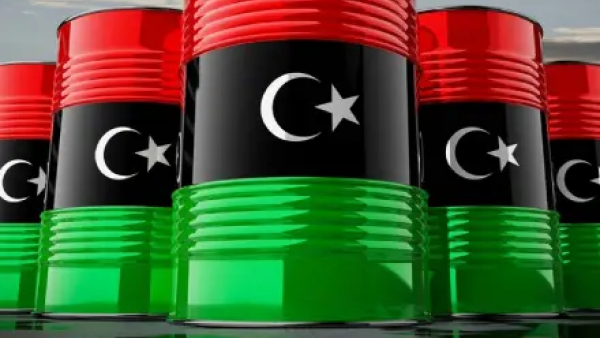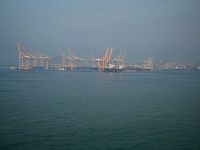A New Chapter in Libya’s Oil Sector
After years of turbulence and uncertainty in Libya’s oil sector, a new chapter may be opening. The recent Supreme Court decision on June 29, 2025, fully acquitting Imad Ben Rajab marks more than a legal correction. It signals the possible return of experienced, disciplined technocratic leadership that the country’s energy industry desperately needs. Ben Rajab, who previously led the National Oil Corporation’s International Marketing Department and coordinated closely with the United Nations on anti-smuggling efforts, embodies the professional expertise capable of stabilizing Libya’s most vital economic sector. His reinstatement provides a window of hope. If supported by credible governance and institutional continuity, Libya could finally unlock the untapped potential of its oil and gas resources, reinvigorating both domestic development and regional cooperation.
Production Rebounds but Value Lags
Libya’s oil sector has been held back for years by mismanagement, political interference, and institutional instability. Even as production rebounded to between 1.3 and 1.38 million barrels per day by August 2025, a level not consistently achieved since before the 2013 blockades, the value actually realized from these barrels remains far below potential. Traders apply a trust discount of two to five dollars per barrel to Libyan crude, reflecting concerns over export reliability. Daily demurrage costs can reach 25,000 dollars per tanker when vessels wait offshore due to operational disruptions. Fuel smuggling, meanwhile, drains an estimated five billion dollars from the state budget annually, roughly equal to Libya’s combined spending on education and healthcare.
The Hidden Cost of Instability
Concrete examples show how critical stability is. In March 2019, when Es Sider and Ras Lanuf terminals operated without interruptions for three consecutive months, Libyan crude traded at less than two dollars below Brent. That reliability added an estimated 180 million dollars to the national treasury, demonstrating the direct value of predictable exports.
Operational Challenges and Infrastructure Gaps
Operational inefficiencies have compounded these losses. In May 2025, a major pipeline leak along the Hamada oilfields forced a shutdown that halted crude flow to the Zawiya refinery, highlighting the consequences of deferred maintenance. Plans to upgrade the Ras Lanuf refinery, a project with potential to significantly boost refining capacity and economic output, remain stalled. These setbacks, combined with fragmented governance and opaque reporting, have eroded both domestic and international confidence in Libya’s energy sector.
The Value of Technocratic Leadership
It is here that technocratic leadership proves invaluable. During periods of turmoil, figures like Imad Ben Rajab, Mustafa Sanalla, Abdulrahman Ben Yezza, and Hassan Bouhadi maintained operational continuity, ensuring predictable export flows even amid militia stand offs. Ben Rajab, in particular, was designated by the UN Security Council as the official focal point on illicit oil transportation, coordinating global efforts to curb smuggling and uphold quality control. His efforts were formally recognized in UNSC reports, underlining his role as a trusted technocrat capable of engaging international institutions. The result is that Libya’s export receipts remained remarkably consistent during volatile periods, a testament to disciplined, professional management.
Unlocking Libya’s Economic Potential
The return of such leadership offers more than operational stability; it unlocks tangible economic potential. Libya sits atop abundant offshore reserves, including NC 41, NC 98, and Bahr Essalam Phase 2. Its Marsa el Brega LNG terminal, Africa’s oldest, remains underutilized, representing a rare opportunity to re-enter the Mediterranean LNG market. With Europe seeking stable, short-haul LNG sources in the wake of Russian pipeline reductions, Libya could leverage proximity to European terminals, faster shipping times, lower bunker fuel costs, and a relatively low-carbon footprint to secure competitive advantage.
Restoring Trust to Capture Revenue
If Libya can restore trust and reduce smuggling, the economic benefits are substantial. Narrowing the trust discount by just two dollars per barrel could return between 600 million and 1 billion dollars annually. Eliminating or redirecting losses from fuel smuggling could double the funding available for critical public services. To put it in perspective, one billion dollars could cover the annual salaries of roughly 70,000 teachers, maintain hospitals, and ensure reliable electricity supply. Moreover, reducing inefficiencies and increasing transparency would make Libya far more attractive to regional and international investors, who are already monitoring Mediterranean opportunities closely.
Libya as a Regional Energy Partner
Libya’s strengthened legal and institutional framework positions it as a reliable partner for Europe and Asia. European buyers seeking alternatives to Russian gas and India reducing Russian imports are increasingly viewing Libya not just as a supplier, but as a strategic partner, capable of delivering stable, predictable energy flows.
Governance, Transparency, and Institutional Safeguards
Restoring institutional trust requires more than production targets; it demands predictable governance. Regular, transparent reporting is essential: quarterly contract disclosures, audited revenue statements, and open procurement calendars can rebuild credibility with both citizens and investors. Institutional safeguards, such as protected compliance focal points and digital monitoring of fuel distribution, can prevent diversion and corruption. These measures worked in the past under technocrats like Ben Rajab, ensuring that Libya honored contracts and maintained steady revenues even in the absence of political stability.
The Supreme Court Ruling: Legal Clarity and Institutional Confidence
The Supreme Court’s acquittal of Imad Ben Rajab offers more than personal vindication, it is an opportunity for Libya to embrace a professional, transparent, and accountable model of governance in its energy sector. With the right leadership, the country can overcome years of underperformance and institutional fragmentation. The benefits extend beyond oil revenues: a credible, well-managed sector attracts investment, strengthens fiscal stability, and enhances Libya’s standing with regional partners.
A Strategic Crossroads for Libya’s Energy Sector
Libya’s energy rebirth is not simply a matter of drilling more barrels or opening new wells. It is about fixing the systemic leaks that have cost billions: inefficiencies, smuggling, and governance gaps. By empowering experienced professionals, committing to transparency, and leveraging strategic assets, Libya can realize the economic potential long promised but too often deferred. Each litre saved, each contract made public, and each dollar accounted for strengthens not just the state, but the social contract between government and citizens.
Conclusion: Leadership and Stability Matter Most
Today, the country stands at a crossroads. Europe’s energy needs, regional investment interests, and Libya’s own untapped reserves create a rare alignment of opportunity. Imad Ben Rajab’s return signals that experienced, principled leadership can again steer the sector toward stability. With integrity, predictability, and professional management, Libya’s oil and gas resources can become not only an engine of national recovery but a source of regional confidence.
For Libya, barrels matter, but leadership, competent stewardship, institutional credibility, and the ability to earn a trust premium matter even more. Stability itself is a revenue stream, and every disruption avoided translates directly into billions that can support public services, infrastructure, and national development.









